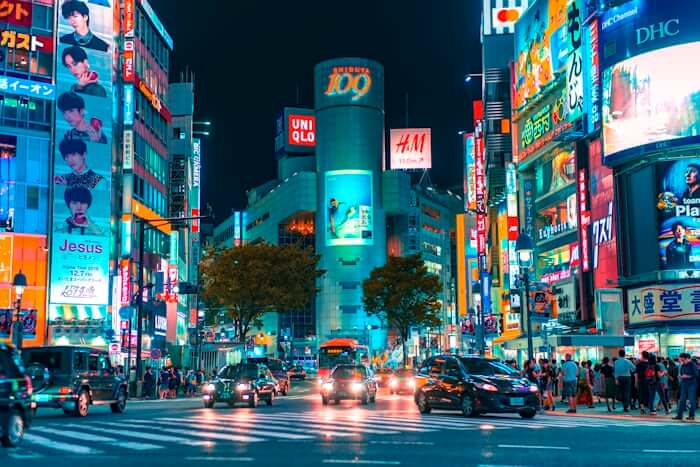Travel isn’t just a way to escape daily routines; it profoundly shapes your brain, behavior, and outlook on life. In 2025, with the world more connected than ever, the psychological effects of travel have become an essential part of personal development. Let’s dive deep into how travel transforms your mental, emotional, and cognitive health.
NEUROPLASTICITY: HOW TRAVEL REWIRES YOUR BRAIN
Your brain thrives on novelty. New environments, unfamiliar languages, and diverse cultures stimulate your neural pathways, a process called neuroplasticity. Each time you navigate a foreign subway or try to order food in a new language, your brain is forced to adapt, strengthening memory, problem-solving skills, and cognitive flexibility.
 In 2025, neuroscience confirms that frequent travelers tend to have denser gray matter in regions associated with spatial awareness and emotional regulation. This means travel doesn’t just change how you think — it changes the structure of your brain.
In 2025, neuroscience confirms that frequent travelers tend to have denser gray matter in regions associated with spatial awareness and emotional regulation. This means travel doesn’t just change how you think — it changes the structure of your brain.
EMOTIONAL RESILIENCE AND STRESS MANAGEMENT
Travel challenges you in unpredictable ways — missed flights, language barriers, unfamiliar foods. Each hurdle you overcome builds your emotional resilience. Instead of breaking under pressure, you develop the tools to regulate stress and remain calm in adversity.
 Clinical psychologists in 2025 recommend mindful travel as a coping mechanism for anxiety and burnout. Exposure to nature, diverse cultures, and even solitude on the road can significantly reduce cortisol (stress hormone) levels, boosting your overall well-being.
Clinical psychologists in 2025 recommend mindful travel as a coping mechanism for anxiety and burnout. Exposure to nature, diverse cultures, and even solitude on the road can significantly reduce cortisol (stress hormone) levels, boosting your overall well-being.
ENHANCED CREATIVITY AND PROBLEM SOLVING
When your brain is exposed to unfamiliar settings, it begins to think differently. This is particularly true for creativity. Studies show that those who engage in immersive travel — where they actively participate in new cultures — experience a boost in creative thinking.
 You’re not just seeing new places; you’re solving complex problems in real time. From figuring out directions in a foreign city to budgeting under different currencies, your brain constantly strategizes. This boosts lateral thinking and fuels innovation back home — both in business and personal life.
You’re not just seeing new places; you’re solving complex problems in real time. From figuring out directions in a foreign city to budgeting under different currencies, your brain constantly strategizes. This boosts lateral thinking and fuels innovation back home — both in business and personal life.
CULTURAL EMPATHY AND SOCIAL INTELLIGENCE
Interacting with people from different backgrounds improves empathy. You start understanding that there are many valid ways to think, believe, and live. This kind of cultural intelligence is invaluable in today’s interconnected global society.
 In 2025, businesses and organizations seek culturally aware individuals for global leadership. Travel builds this awareness. It teaches tolerance, perspective-taking, and communication — all critical traits in both professional and social relationships.
In 2025, businesses and organizations seek culturally aware individuals for global leadership. Travel builds this awareness. It teaches tolerance, perspective-taking, and communication — all critical traits in both professional and social relationships.
IDENTITY DEVELOPMENT AND SELF-AWARENESS
When you step out of your normal life, you strip away societal expectations. You begin to ask: Who am I outside of my job, my city, my culture? Travel pushes you into introspection. You learn what excites you, what scares you, what drives your joy.
 Solo travel especially accelerates this self-exploration. Without the influence of friends or family, your decisions are purely your own. This autonomy strengthens confidence, independence, and self-trust — all keys to long-term happiness.
Solo travel especially accelerates this self-exploration. Without the influence of friends or family, your decisions are purely your own. This autonomy strengthens confidence, independence, and self-trust — all keys to long-term happiness.
THE PSYCHOLOGY OF COMFORT ZONES
Comfort zones are safe, but they rarely lead to growth. Travel disrupts your routine and introduces positive discomfort. Whether it’s ordering unfamiliar food or navigating a rural village, you’re constantly stretching your boundaries. With every new experience, your brain expands its tolerance for ambiguity. This makes you more adaptable — a vital skill in uncertain times like 2025. Comfort zones shrink with use; travel expands them.
TRAVEL AND RELATIONSHIPS: BONDS FOR LIFE
Shared travel experiences — whether with a partner, friend, or stranger — create stronger social bonds. The emotional highs and lows of travel forge deep, lasting connections. These bonds are rooted in mutual discovery and vulnerability. Even solo travelers find themselves engaging more freely. In hostels, buses, cafes, and walking tours, travelers naturally connect. These spontaneous relationships can evolve into lifelong friendships or even love stories.
DIGITAL DETOX AND MINDFUL PRESENCE
In 2025, most of us live with digital overload. Travel offers the perfect opportunity to unplug. When you’re marveling at a sunset in Santorini or hiking a Rwandan volcano, you’re less inclined to scroll. This disconnection allows mindfulness. You become aware of the moment — the sounds, smells, and sights. Over time, this presence improves focus, patience, and gratitude. Your brain relearns how to enjoy life offline.
THE LONG-TERM EFFECTS OF FREQUENT TRAVEL
Travel doesn’t just change you during the trip. It leaves lasting mental imprints. People who travel often in their younger years tend to be more open-minded, emotionally intelligent, and mentally agile later in life. Even years after a journey, the stories, struggles, and insights remain. They inform your choices, shape your personality, and inspire future adventures. Travel is not a break from life — it is life, in motion.
CONCLUSION: BECOME A BETTER VERSION OF YOURSELF THROUGH TRAVEL
Whether you’re exploring neighboring countries or crossing continents, travel is the ultimate tool for mental and emotional evolution. It transforms your thinking, sharpens your brain, and softens your heart. In a rapidly changing world, travel keeps you grounded in what really matters — discovery, connection, and growth.
🌍 Ready to start your transformation? Explore our TravelPalzz Shop for handpicked essentials to enhance your journey!